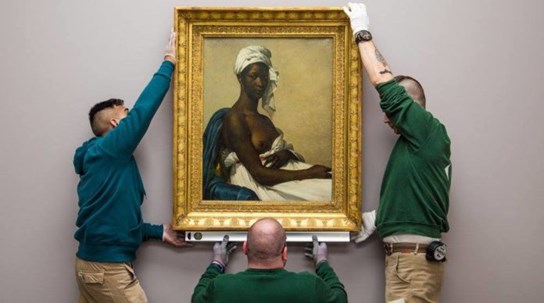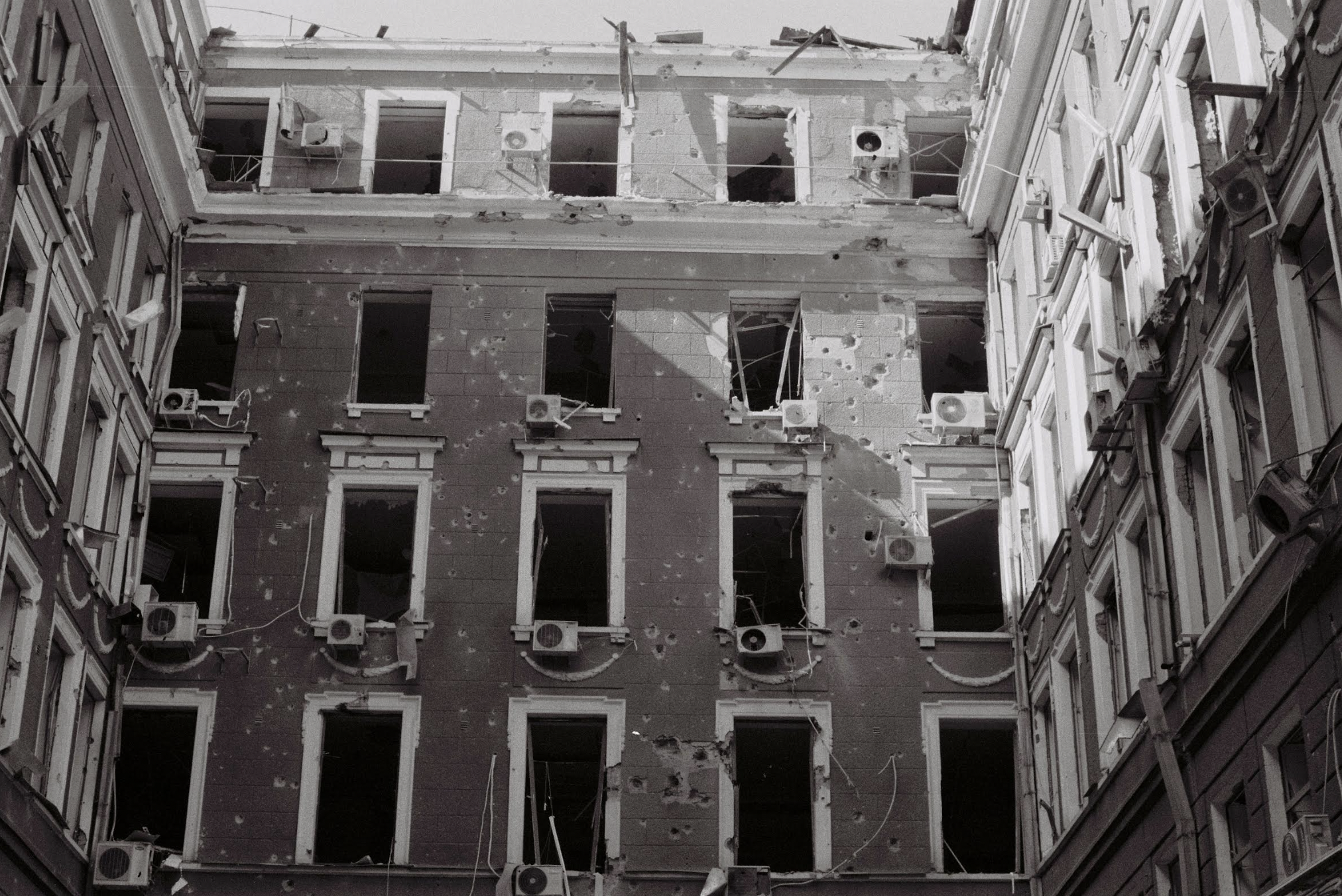Photo: © Musée d'Orsay / Eric Jouvenaux, via Musée d'Orsay Facebook page
Culture, at the heart of our intimate construction and social cohesion, a marker of France’s international influence, has been severely affected by the health crisis. With €2 billion for Culture, the response is massive and global. The challenge of the Culture Recovery Plan is both to rebuild the cultural sectors and to reshape cultural policies, in order to be able to support the resumption of activity and project into the future.
Culture as a whole has been hit hard by the health crisis.
Yet, Culture in the Economy as a Whole in 2018 is:Nearly 2.3% of GDP;
80,000 cultural enterprises, mostly small and medium-sized enterprises;
670,000 jobs, or 2.5% of the labour force.
In 2020, the State implemented emergency measures, which resulted in the mobilization of €856 million in specific aid for Culture, to which are added the «white year» for intermittence (€949 million) and transversal aid (partial activity, exemptions from social security charges, solidarity fund, loans guaranteed by the State for a total of nearly €3.3 billion). This aid will continue in part and in accordance with adapted arrangements until the end of 2020.
The recovery plan, with €2 billion in additional funding, will support the heritage in the territories, promote the recovery of the living spectacle and the reconquest of our creative model, as well as consolidate our major cultural economic sectors.
Five key priorities were identified:
1. The restoration of heritage,
2. Support for the performing arts and public creative institutions,
3. Support for artists and young creators through specific employment support, an exceptional programme of public procurement and a strengthening of cultural higher education,
4. The consolidation of strategic cultural sectors (press, film and audiovisual, book, public audiovisual, etc.),
5. Future investments for the cultural and creative industries.
Details of the measures:
A revival by and for heritage, combining activity in the territories and attractiveness of France (€614 million)
Valorisation of art crafts and expertise of excellence (€280 million)
Heritage innervates the territories. However, it desperately needs to be maintained and restored, while the health crisis has weighed on funding. The recovery plan will make it possible to rehabilitate it, with very concrete effects in terms of economic development, attractiveness and international influence of our country, and attendance at monuments and other heritage facilities (museums, archives, archaeology) in the territories.

Photo: © Musée d'Orsay / Eric Jouvenaux, via Musée d'Orsay Facebook page
The recovery plan will notably make it possible to implement an unprecedented «cathedrals plan», endowed with €80 million and to support, beyond the perennial means mobilized each year by the State, the restoration of historic monuments belonging to municipalities and private owners (€40 million). Beyond that, it will also accelerate the restoration of the national monuments presented by the National Monuments Centre throughout the territory (€40 million) and fully carry out the restoration and development project of the castle of Villers-Cotterêts (€100 million). Finally, a specific budget of €20 million is provided for the renovation of other heritage facilities (museums, archives, archaeology).
Support for the resumption of activity of heritage public institutions supporting France’s attractiveness and international influence (€334 million)
Public heritage institutions (Musée du Louvre, Château de Versailles, Centre des monuments nationaux, Musée d'Orsay et de l'Orangerie, RMN-GP, Centre Pompidou, Universcience, etc.) are now facing an unprecedented crisis, that affects their economic and cultural model. Their attendance, which depends for a large part on international tourism, has collapsed (between -40 and -80%) considerably reducing their operating resources and their ability to invest and plan in terms of multi-annual scientific programming, artistic and cultural. Health constraints also require the ability to adapt cultural supply and forms. In view of their essential role in terms of international influence and the attractiveness of France and the driving force behind tourism, the recovery plan will help these establishments to resume their activities.
2. Reclaiming our artistic creation and dissemination model (€426 million)
With more than €7 billion in losses in 2020, the creative arts sector, composed of performing arts and visual arts, has been particularly affected by the health crisis. Resolute action is being taken as part of the recovery plan to ensure the survival of creation, its diversity and vitality, and to support artistic employment in all its forms and territories.
€220 million for the private live show, excluding support mechanism for resumption of activity, handicapped by physical distancing (€100 million)
For the music will be mobilized 200 M€ of credits for the musical chain in its entirety (shows and concerts, recorded music, etc.), entrusted to the National Center of the Music: they will benefit various devices to the profit of the theatres of show, producers, authors, publishers and broadcasters. In order to be able to manage the effects of the crisis and overcome it, €10 million are planned to complete the ramp-up of the National Music Centre over 2 years: created at the beginning of the year, This institution has been directly involved in managing the crisis and must be able to consolidate its foundations.
For private theatre, an envelope of €10 million will make it possible to replenish the emergency fund for private theatres and non-contracted companies. It will be managed by the Association de soutien au théâtre privé (ASTP).
In addition to these means included in the recovery plan, a new mechanism to compensate for operating losses due to the persistence of distancing measures will be put in place to encourage the resumption of activity by theatre operators. Endowed with €100 million, excluding stimulus appropriations, this system will be introduced after consultation with professionals in the sector, with effect from 1erSeptember 2020 and for a period of 4 months. This mechanism will be open to private sector SME/TPE theatre operators. The State will pay attention to the fair redistribution of value from the entire chain to artists and authors.
€206 million for the subsidized live show
The labeled institutions and the networks also mesh the territory and make the specificity of the model of creation and artistic diffusion French, the State and the territorial collectivities allowing, through their joint funding, support the diversity of creation and aesthetics. In addition to the existing funding, which the State consolidated during the crisis, an envelope of €30 million will support these performing arts institutions living in the regions (theatre, dance, street arts and circus) In addition, €30 million will be allocated to accompany ensembles, operas, orchestras and festivals in the territories. Finally, a €20 million fund will be deployed to encourage the ecological transition of the facilities of these creative institutions.
Moreover, public establishments and operators of creation (Opéra national de Paris, Comédie Française, Philharmonie de Paris, Palais de Tokyo, etc.) participate in the artistic excellence and the international influence of France. Like heritage public institutions, they are now facing an unprecedented crisis that is affecting their economic and cultural model. Their attendance has collapsed in a context where, like all other live performance venues, sanitary measures do not allow at this stage a total resumption of activity and require the ability to adapt the offer and cultural forms. In view of their essential role in terms of international outreach, the recovery plan will support these institutions in their recovery of activity (€126 million).
3. A specific effort to support artistic employment, revitalize young creation and modernise the network of cultural higher education institutions (€113 million)
€13 million to support artistic employment
In order to promote the reconquest of our model of creation and support artistic employment in all its forms, a support mechanism for populations weakened by the crisis, in addition to the transversal devices, will be set up for a total amount of €13 million, Of which €7 million will be dedicated to live performance and €6 million to visual arts.
€30 million for a large artistic order
This exceptional public order plan will give new impetus to creation in all disciplines (crafts, performing arts, music, literature, plastic arts, etc.).
This program will be primarily dedicated to young creators, to support them in a context that has particularly weakened the beginning of their artistic career and their professional integration after school.
€70 million to renovate cultural higher education schools
The recovery plan will also put in place a new plan to modernise cultural higher education institutions and support training (École supérieure d'art de Cergy, Conservatoires nationaux supérieurs de musique et de danse de Lyon et de Paris, Ecole nationale supérieure des Beaux-Arts, ENSA Paris-Malaquais, Normandie, Bordeaux, etc.).
The buildings of these schools, which are often more than 30 years old, no longer meet environmental standards, regulatory educational standards, or the legitimate constraints of student life. In addition to the operations already launched (as for the architectural schools of Toulouse and Marseille), the recovery plan will support a comprehensive plan to renovate the buildings of the schools of cultural higher education for an amount of €70 million over two years.
Finally, the health crisis has also revealed a manifest obsolescence of distance education capacities that calls for a significant investment in digital technology.
4.The consolidation and modernisation of strategic cultural sectors heavily impacted by the crisis (€428 million)
These sectors represent a challenge for the dissemination of cultural offer, territorial economic vitality with a favourable impact on employment and growth, and international competitiveness (French cultural exports grew twice as fast as total exports between 2013 and 2016: +16% against +8%). Despite strong growth potential, they have been particularly hard hit by the health crisis, which has highlighted their fragility and lag in digital distribution. While France can rely on internationally recognized cultural know-how, history and heritage, its positioning in the global digital environment must be strengthened. The stimulus package is thus put at the service of this issue.
Press Function Plan (€140 million)
The measures in Amending Finance Law No. 3 made it possible in 2020 to deal with the double economic crisis linked to the impact of the health crisis and the restructuring of Presstalis. But in the face of the unprecedented economic crisis affecting the press sector, whose situation has deteriorated further as a result of the health crisis and the difficulties of distributing the printed press sold in the issue, the State has decided to give the press an exceptional and massive support that was presented by the President of the Republic and the Minister of Culture to all actors of the sector on 28 August. The recovery plan will contribute €140 million to this global plan, which has mobilized a total of €483 million over two years, thanks to the credits opened in 2020 in LFR 3 and those foreseen in PLF 2021.
Book function plan (€53 million)
The implementation of the “Delivered Plan” initiated in 2020 in the Amending Finance Law No. 3 is also part of the recovery plan. This plan aims to combat the most lasting effects of the health crisis, but also to accompany the necessary changes in the sector. In addition to the "Young people in bookstores" operation and the financing of book purchases from bookstores by public libraries, bookstores will be supported to develop their digital tools for distance selling. Finally, the global decentralization allocation (DGD) for libraries will be temporarily reinforced in order to continue the plan to extend opening hours and make major structural investments. The recovery plan will contribute €53 million to this global plan, which has mobilized a total of €89 million over two years, thanks to the credits opened in 2020 in LFR 3 (€36 million).
Cinema and audiovisual sector plan (€165 million)
The supply of new works is the raw material on which all the value of the sector rests, from upstream (authors) to downstream (technical industries, distribution, distribution). The €105 million recovery plan is based on an “export and attractiveness” plan, a set of targeted measures (increased support for works written and filmed in France) and enhanced support for exhibitors, festivals, cinematheques as well as educational workshops on the image, vectors of cinephilia and cultural life in all territories. Beyond that, €60 million will be dedicated to the financial rearmament of the NCC, which will implement the entire plan.
Cinema operators will be eligible for the new mechanism to compensate for operating losses due to the persistence of distancing measures, which will be endowed with €100 million by autumn 2020. This system will be introduced after consultation with professionals in the sector, with effect from 1erSeptember 2020 and for a duration of 4 months.
Support for public broadcasting (€70 million)
Public media play a crucial role in the balance of the creative ecosystem, characterized by strong interdependencies between the actors that make it up. Their program spending and investment in creation finance the entire upstream sector (authors, producers, performers, etc.) put at risk by the period of confinement.
An exceptional public allocation of €70 million will help cushion the effects of the crisis. These companies are also being asked to continue the transformation plans in which they are engaged.
5. A strategy for the future for all the cultural and creative industries (€19 million in budget appropriations and €400 million in PIA4 over 5 years)
The recovery plan makes it possible to provide a transversal and immediate response to the problem of access of the French cultural and creative industries (ICC) to the economic opportunities indispensable to their recovery, whether in terms of registration in the territories, visibility in the digital environment and access to bank financing. Indeed, while France can rely on internationally recognized know-how, heritage and cultural history, its positioning in the global digital environment is not acquired, while the major players in the Internet, for almost all extra-A large number of cultural uses are concentrated in Europe.
In addition to budgetary resources, the Ministry of Culture, in liaison with the General Secretariat for Investment, the Ministry of Economy, Finance and Recovery and the Ministry for Europe and Foreign Affairs, a comprehensive short- and medium-term strategy to accelerate the digital transition of cultural and creative industries, strengthen their place in the digital global economy and enhance their resilience. Developed within the framework of the Estates General of the ICC, launched by the President of the Republic last year, this strategy will be endowed with a €400 million envelope over 5 years as part of the 4th Future Investment Plan. It will be based on the establishment, in the near future, of a strategic committee on cultural and creative industries.







